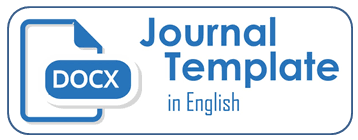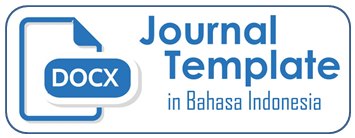Analisis gejala akhir pekan (the weekend effect) terhadap return saham LQ45 di Bursa Efek Indonesia periode 2016
DOI:
https://doi.org/10.26486/jramb.v3i2.414Keywords:
saham, bursa efek indonesiaAbstract
Penelitian ini berjudul “Analisis Gejala Akhir Pekan (The Weekend Effect) Terhadap Return Saham LQ45 di Bursa Efek Indonesisa Periode 2016â€. Penelitian ini digunakan untuk melihat peristiwa anomali return periode 2016 pada indeks LQ45. Hipotesa dalam penelitian ini adalah H1: Adanya dugaan terjadi efek akhir pekan (weekend effect) yang menunjukkan adanya perbedaan return saham pada hari Jumat akan lebih tinggi dan hari Senin akan menunjukkan return yang lebih rendah. Periode penelitian ini adalah Februari 2016 sampai dengan Januari 2017 dengan total 42 Emiten yang berturut-turut masuk kedalam indeks LQ45. Uji hipotesis menggunakan uji independent sample t-test. Hasil penelitian menunjukan nilai t pada equal variances assumed (t hitung) adalah sebesar 1,532 dengan df = 94, dengan nilai probabilitas (Sig.) 0,129 lebih besar 0,05 maka dapat disimpulkan bahwa Ho gagal ditolak artinya tidak terdapatnya perbedaan antara rata-rata return saham hari Senin dengan rata-rata return saham hari Jumat, sehingga H1 ditolak.
Â
Downloads
Published
Issue
Section
License
Authors who publish with (JRAMB) Jurnal Riset Akuntansi Mercu Buana agree to the following terms:
Authors retain copyright and grant the JRAMB right of first publication with the work simultaneously licensed under a Creative Commons Attribution License (CC BY-SA 4.0) that allows others to share (copy and redistribute the material in any medium or format) and adapt (remix, transform, and build upon the material) the work for any purpose, even commercially with an acknowledgement of the work's authorship and initial publication in JRAMB. Authors are able to enter into separate, additional contractual arrangements for the non-exclusive distribution of the journal's published version of the work (e.g., post it to an institutional repository or publish it in a book), with an acknowledgement of its initial publication in JRAMB.
Authors are permitted and encouraged to post their work online (e.g., in institutional repositories or on their website) prior to and during the submission process, as it can lead to productive exchanges, as well as earlier and greater citation of published work (See The Effect of Open Access).












